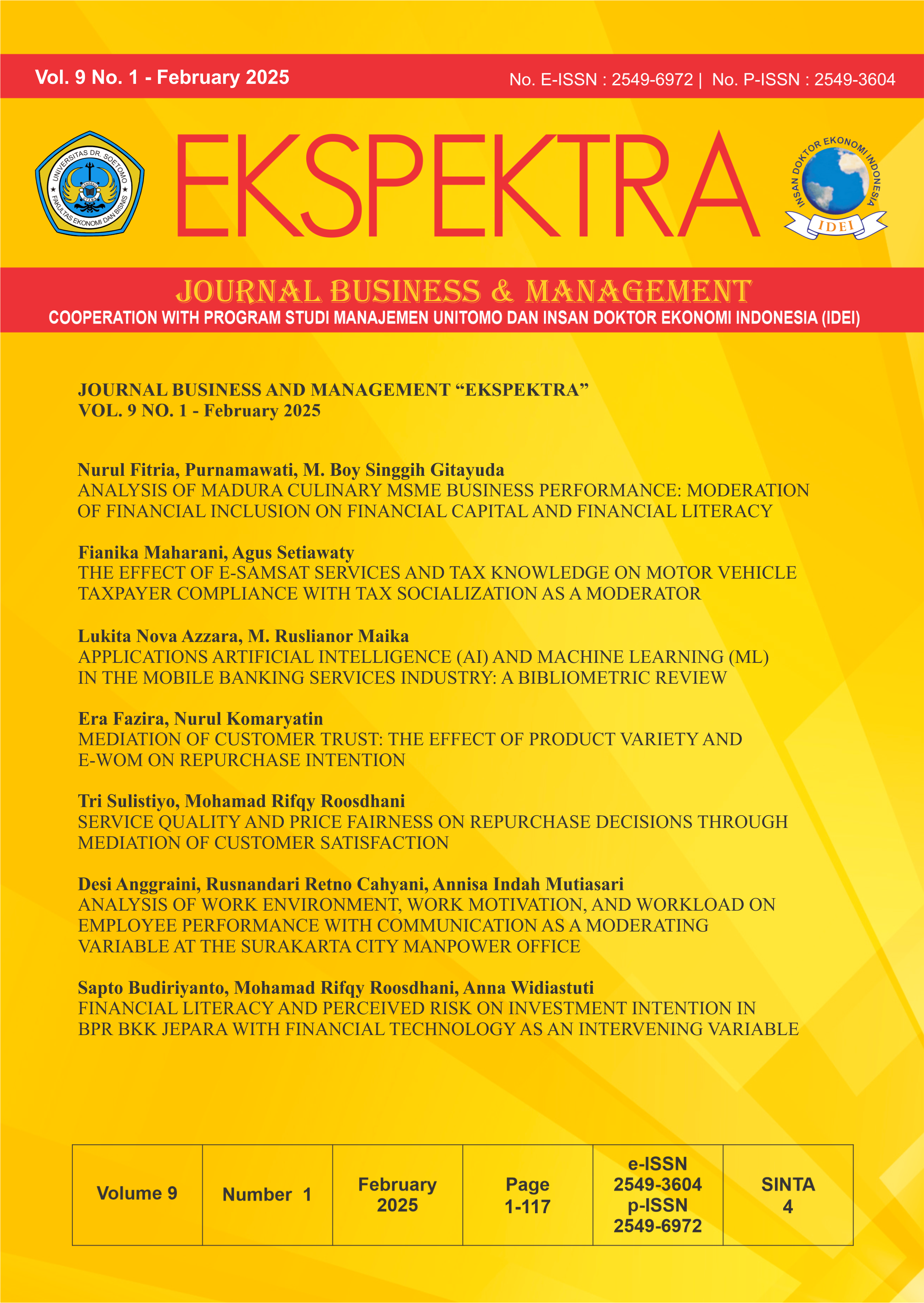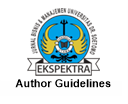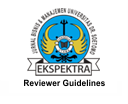Analysis of Work Environment, Work Motivation, and Workload on Employee Performance with Communication as a Moderating Variable at the Surakarta City Manpower Office
 Abstract views: 39
,
Abstract views: 39
,
 PDF Journal downloads: 41
PDF Journal downloads: 41
Abstract
This study explores how the work environment, work motivation, and workload influence employee performance, with communication as a moderating factor. The research was conducted with 45 employees from the Surakarta City Manpower Office (DISNAKER) using a non-probability sampling method and a saturated sampling technique. The data was analyzed using Partial Least Squares (PLS), which included both outer and inner model analyses. The findings revealed that the work environment, work motivation, and workload all have a positive and significant effect on employee performance. On the other hand, communication was found to have a negative and significant effect on employee performance. Interestingly, communication did not act as a moderator in the relationship between the work environment, work motivation, workload, and employee performance. The results suggest that creating a positive work environment is key to improving employee performance, as it ensures safety and comfort, helping employees perform their tasks more effectively. Balancing workload is also important. Too much can lead to burnout, while too little can cause disengagement. Clear and effective communication is essential to ensure smooth collaboration, but this study highlights that communication alone may not always resolve performance issues.
Copyright (c) 2025 Ekspektra : Jurnal Bisnis dan Manajemen

This work is licensed under a Creative Commons Attribution-ShareAlike 4.0 International License.
Ekspektra : Jurnal Bisnis dan Manajemenis licensed under a Creative Commons Attribution-ShareAlike 4.0 International License.






















